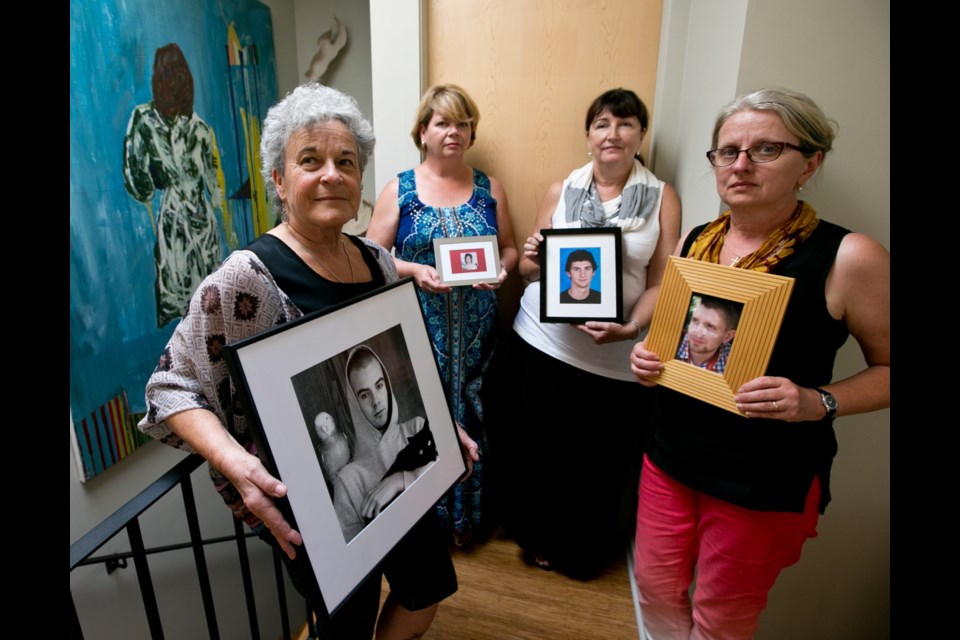Pharmacies across B.C. have permission to sell a life-saving overdose antidote without a prescription thanks to a federal drug policy revision in tandem with a provincial push.
Health Canada revised its prescription drug regulations this week to allow more leniency in the sale of naloxone, which is used to reverse the effects of overdoses from opioid drugs such as morphine, oxycodone and fentanyl.
B.C. is among the first provinces to amend its regulations to make non-prescription naloxone more widely available.
“It is wonderful news,” said Petra Schulz, a Mayne Island mother whose 25-year-old son died last April after taking what she believes was one fentanyl pill.
“In the past, only the user him- or herself could get the prescription, so parents had to lie and say that they themselves are users to get the life-saving kit,” said Schulz, a co-founder of mumsDU — Moms United and Mandated to Saving the lives of Drug Users.
The changes mean that anyone can go to a participating pharmacy for naloxone.
The drug, which is administered by intramuscular injection, will be available behind the counter in one-use doses, said Gillian Vrooman, spokeswoman for College of Pharmacists of B.C. Pharmacists will be required to provide training and information for the use of the drug.
The price of naloxone varies from $1 to $14 per dose depending on the manufacturer — it will be up to pharmacies how to price it and the cost will not be covered by B.C. Pharmacare.
The move comes amid a growing number of drug overdoses.
The B.C. Coroners Service is investigating 32 possible overdose deaths in the past four months on Vancouver Island, said Island Health official Sophie Bannar-Martin. There have also been twice the number of patients visiting Island emergency rooms for overdoses within the last three months than in same time period last year, she said.
Making naloxone easier to get will without a doubt save lives, said Dr. Richard Stanwick, medical officer for Island Health. He noted that the federal government moved quickly to bring about the drug policy changes, which some feared might take years.
Ashraf Amlani, an epidemiologist, said staff at the B.C. Centre for Disease Control are ecstatic that federal and provincial regulations changed in light of “the opioid overdose crisis in Canada.”
B.C.’s Take Home Naloxone program, which distributes naloxone kits to people who use opioids, has trained more than 6,500 people to respond to overdoses by injecting naloxone, reversing 488 overdoses that could have resulted in death or severe brain damage, Amlani said in a statement.
Last year, Island Health distributed 992 kits, Bannar-Martin said. Since Jan. 1, 1,336 have been given out across Vancouver Island.
Provincial health officer Perry Kendall encourages “parents and friends of people who use drugs to visit their local pharmacist for training and include naloxone as part of their first aid kit.”



